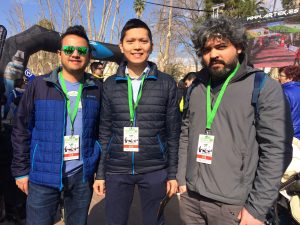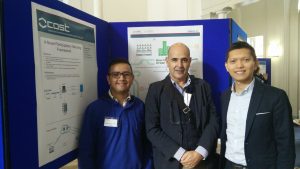To organize a scientific event in the form of a workshop as part of the 25th European Conference on Information Systems (ECIS). ESR 01,03,04,05,06,13 and 15 gathered in Guimaraes – Portugal to discuss the topic of “Opening Smart cities: challenges to engage citizens through information systems.”
The workshop aimed to allow space for the participants and organizers to reflect on current smart cities practices and their challenges, and possible ways to address them. It was particularly emphasized by the call that the participants considered and proposed over the importance of effective citizen engagement strategies and platforms within the smart cities’ context.
Different activities took place during the workshop: presentation session and brainstorming session. The presentations covered a broad range of topics (citizen engagement, privacy from the smart city’s point of view, participatory budget and transformation of smart and sustainable cities). After the presentations, an interactive session was built on the group discussion and brainstorming. The topics included “IoT & Privacy in smart cities,” “Openness in smart cities: challenges and impact” and “Sense of place to promote participation in smart cities.” Participants were divided into two groups, and finally, they all agreed on common issues concerning the participation of citizens in city contexts such as isolation, exclusion and lack of participation.
More information on the workshop can be found here:
http://www.ecis2017.eu/wp-content/uploads/2017/05/ECIS2017-OSC.pdf
Pictures of the workshop:



